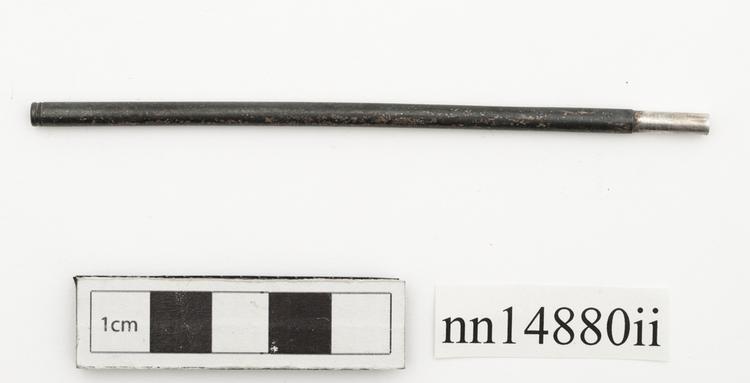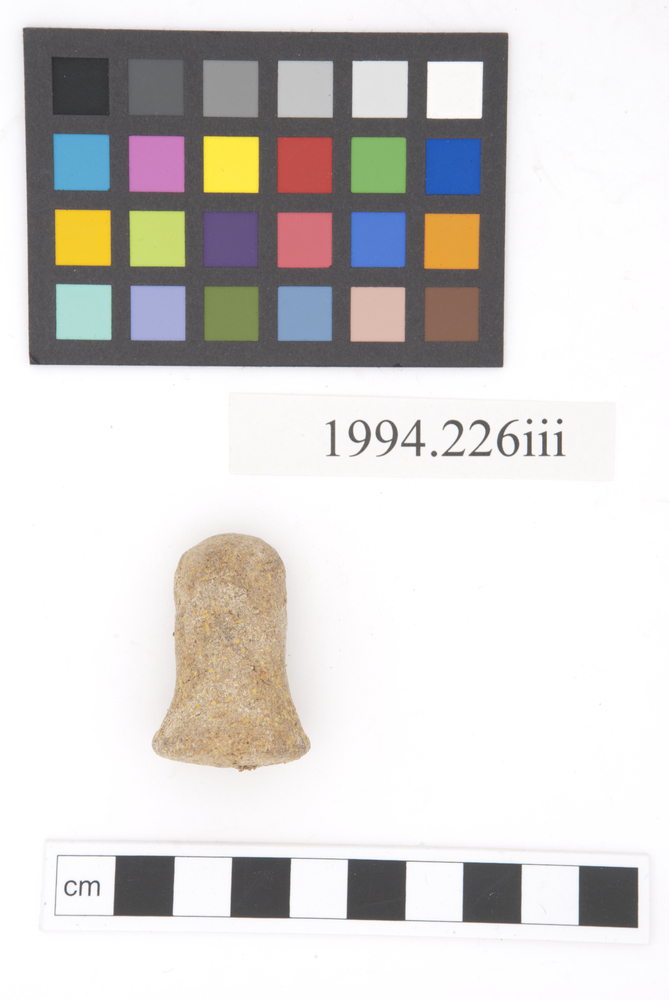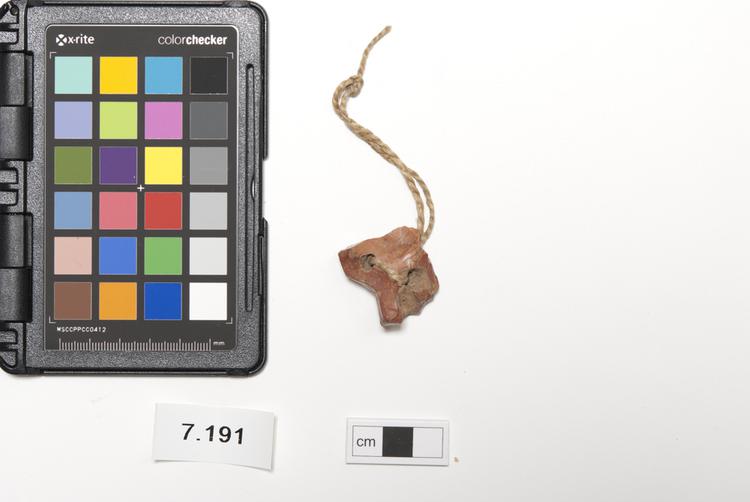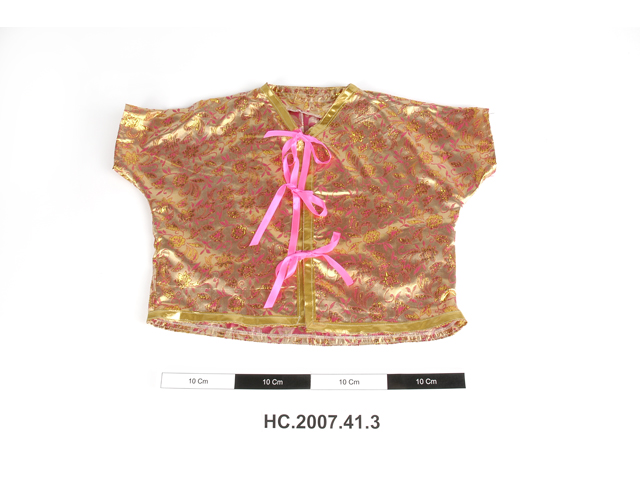Sierra Leonean country cloth, of the composite kpokpo style. This cloth is made of seven strips, woven individually on a tripod loom. When sewn together they produce a larger overall pattern. The patterning includes three bands decorated with two colour diamonds at either end, and at the centre. Between these is a wide cream band decorated with a yellow, and 2 black double diamond motifs. Each of these bands is framed by thin two-tone striped bands. They are separated by bands containining thinner black and white bands framed by wider black bands. The unwoven end of the warp at both shorter sides forms an integral fringe.
An example of Sierra Leonean country cloth, of the kpokpo type. These thick heavy textiles were traditionally made from locally grown cotton, collected by women and spun into thread and dyed by men. Men were also the main weavers, and would have used a tripod loom to create a series of strips which were then sewn together edge to edge to create a larger cloth with a more complex pattern. County cloths have been recorded as being used as trade items, worn as part of elite ceremonial dress, as well as burial shrouds (plain white).






